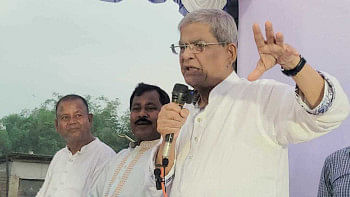Realities of Law as a Career

The first question that arises in this very topic is why study law? While traditionally a majority of students who take up law are influenced by their parents, for a lot of confused undecided students, law becomes a viable career choice due to its flexibility as Maimuna Gulfam Huq, a third year student at London College of Legal Studies (South), confirmed by saying “A wide range of fields open up for law students which act as a motivating factor for many”. There’s also an increasing number interested in societal justice and hence willing to contribute by learning about the ins and outs of law and how to use it to help people and serve the country as a whole. “The urge to help underprivileged women and children with legal aids encouraged me to pursue this career” said Noushin Tabassum, a second year law student at BRAC University. Needless to say, pursuing a career in law equips you with the ability to fight various injustices and thereby make a difference on your part. Lastly, there’s the inevitable thrill. As Md. Joynul Hoque, a graduate from Jagannath University mentioned, “I love the thrill of new cases and challenges that only a career in law can provide.” However, if you’re an avid fan of televised legal dramas and decide to become a lawyer on that basis, be forewarned. Even though the heightened thrill may look appealing, in reality luck won’t always favour you as it constitutes of far more complexities and hardships.”
As with all career paths, people have a lot of expectations and misconceptions about law school. Naima Afsar, a third year student at Nottingham Law Academy, Bangladesh, said “My expectation of having to put in long hours and hard work in law school proved to be true. However, law school keeps surprising me with newer degrees of challenges every day. It is a highly competitive field both in terms of coursework and extra-curricular activities, so even if you were a topper in your school life, you can expect having to push yourself the extra mile to stay ahead in the race.” “Law school can take a toll on the mental wellbeing of its students as it can get incredibly difficult as you move forward; often it is not easy to finish law school as early as many would like” said Nazmul Abedin, a third year student at British School of Law. Another thing that students expect, or rather fear, from law school is its requirement of rigorous memorising. While this is true to an extent, a whole lot of it also practicing. Professor Preeti Kana Sikder, Lecturer at the Department of Law and Justice at Jahangirnagar University, said “It is a misconception held by many that students with a background in humanities have higher likelihood in excelling in a career in Law as they have better memorising abilities. Any student who excels at analysis will be a successful law student, regardless of background”. She added how many of her best students were from Science and Business Studies backgrounds.

Excelling in law school requires a lot of practising, hence law schools worldwide are known to have lots of opportunities in this area, one of which is in the form of Mooting. While there are highly competitive Moot Court competitions being held all around the world at prestigious law schools, Bangladeshi students are already making a mark with notable events including University of Dhaka establishing its first Moot Court Society in Bangladesh under the Faculty of Law, with most other law schools of the country following suit. Another practice law schools provide are in the form of Law Reviews, which are no less exciting than Mooting Competitions. While getting to be on the editorial board of Law Review work to greatly boost a student’s extra-curricular activities, they also get to learn skills in terms of editing, reviewing and publishing scholarly articles which go on to be read by the whole world and often impact judicial decisions. “The vast range of opportunities available in the form of mooting, research, and publishing was incredibly helpful as it boosted my learning extensively” said Raihan Ferdous, a third year law student at University of Dhaka. The degree to which students are exposed to such activities varies from law schools but as a whole, development in these areas is still ongoing in Bangladesh and will hopefully go mainstream in the coming years.
Looking into the various obstacles faced by law students, one of the biggest has proven to be language as complex legal jargon takes some getting used to by students especially freshers. Even those fluent in English are often seen to be having trouble. Moreover, acquiring case judgements and some other reading materials seemed hard for a few students as some aren’t easily available in the public domain. Regarding course content, Md. Forhad Hossain, who graduated from Bhuiyan Academy, said “As we were mostly taught British Law in Bangladesh, there were hardships in applying them in Bangladeshi contexts as the countries differed in various aspects including culture and society”, a common obstacle faced by those studying to become Barristers under British Law. Many complained that the course content taught is backdated compared to law schools of other countries. Consequently, it is also complained that the rules and techniques of courts are not adequately covered in the syllabus followed by our law schools, as a result of which newer lawyers find themselves having to learn a lot from court room technicalities while on the job. While law schools in our country are continually improving practicing opportunities for their students, the current situation is still insufficient, leaving students to find extracurriculars on their own. “Our law school system is not very practice oriented. However, to tackle this issue I had to join research activities and chamber works at a very early stage” said Nowshin Noor, a third year law student at University of Dhaka. Lastly, there is the ever so common adjustment conundrum, as law school, like all other degrees, means having to study alongside people of widely variegated backgrounds and education systems, not to mention the immensely heavy course-load.

Every degree is only as good as the career prospects it opens up and in order to climb the ever so competitive ladder of superiority in lawyering, one of the crucial stepping stone is to pass the bar. There are two main types: if you want to become a barrister (in UK) studying British Law, there’s the British Bar Exam which students have to take from the UK and enrol as British lawyers whereas to become an advocate, students who study Bangladeshi law have to sit for the Bar Council Enrolment Examination to become a member of the Bangladesh Bar Council and practice in Bangladeshi Courts. Students usually start preparing for the bar exam from their third year of law school. Noshin Nanjiba, a third year law student at University of Dhaka, said “It is a lengthy process and sticking to it for two years is hard. Moreover, dealing with the various stages of the exam pose as a test of both patience and resilience”. The prerequisites include completion of a six-month apprenticeship under a senior lawyer who has at least ten years of practicing experience. After filling up appropriate documents, you sit for three stages; a multiple choice section, written, and viva consecutively after passing each stage one at a time. Completing the entire exam will make you eligible to practice in subordinate courts as an advocate. One crucial obstacle related to the bar exam in Bangladesh was described by fourth year law student at University of Dhaka, Ali Masraf, as follows, “The exams are held quite infrequently so if one fails at any stage, they have to wait for years to reappear, thus jeopardising their career plan as a lawyer.”
To add to that, the selection procedure is lengthy and very few are selected at a time amongst students from all over the country, making it all the more competitive.
Once you’ve passed the bar, law students can apply to almost any type of job, be it private or public, national or multinational, regional or international. Some law-related job aspects include that as an Assistant Judge recruited by Bangladesh Judicial Service Commission (BJSC), Bangladesh Civil Service posts, jobs in all educational and financial institutions as legal advisors or in-house lawyers. Graduates can also look into starting their own private legal service, take up teaching as a profession or even work at International and National Non-Government Organisations (NGOs). However, while it is important for students to pass the bar in order to practice in courts, a whole lot of career options also open up for those who don’t. Hence, if you don’t pass the bar, you can still apply for the judiciary exam and BCS exam or even work as law officers, corporate employees, legal researchers or law school lecturers. Regarding the routine life of a lawyer, Farzana Mahmood, who practised as a Barrister-at-Law at the High Court of Bangladesh, said “It is a hectic profession with a not-so-female friendly environment which sometimes result in extra procedural complexities due to lack of cooperation from court employees.”
However, as the aforementioned obstacles are true for most professions she added “Like all highly competitive professions, its challenging nature acts as motivators which fuel the need to cause change with its potential to help people and change lives. Not to mention you can make a decent living for yourself while you’re at it.”
Even though people in this profession are individuals with various personalities, one thing they all have in common is perseverance and the knack for standing up for what is right. It is truly inspiring to see that a glimmer of hope exists in a future where we have people fighting for what is right and just; the best part of a career in law being that it enables you to do all that for a living. While all great professions come at a cost, those that directly enable you to make a change have stakes that are bound to be higher than ever. By tackling these very hurdles one at a time, a career in law will undoubtedly provide you with a journey of constant learning and self-betterment, all the while enabling you to help people and affect their lives positively in the process.
Veronica Gomes is a socially awkward sophomore.
Feel free to trigger awkward encounters by reaching out to her

 For all latest news, follow The Daily Star's Google News channel.
For all latest news, follow The Daily Star's Google News channel. 



Comments